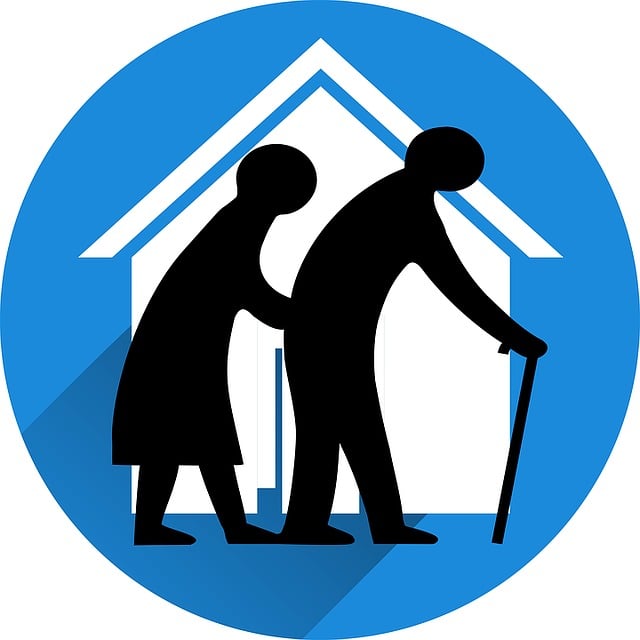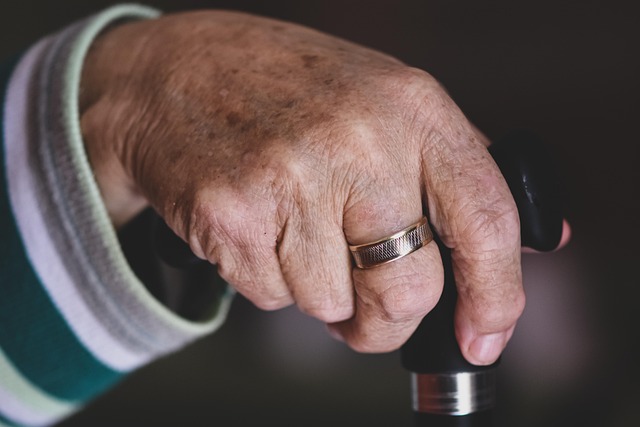Plano, Texas institutions combat elder abuse, particularly sexual assault, through a multi-faceted strategy involving staff training, financial monitoring, open dialogue, and regular assessments. Elderly sexual assault lawyers Dallas play a crucial role in educating seniors about their rights, securing convictions, and influencing public policy. Comprehensive resource centers offer educational programs and tailored legal aid. Training programs for healthcare workers, social services, and law enforcement focus on identifying vulnerabilities and implementing effective intervention strategies. The goal is to create a protective environment for seniors through community support and legal interventions.
Elder abuse is a pervasive and often overlooked issue, with serious consequences for the well-being of our aging population. As society navigates an increasingly aged demographic, protecting vulnerable seniors from financial manipulation, physical harm, and even sexual assault becomes paramount. Plano institutions, recognizing this critical need, are stepping up to prevent elder abuse through robust programs, education, and legal advocacy. This article delves into the multifaceted strategies employed by these entities, highlighting their crucial role in safeguarding the rights and dignity of the elderly, with a special focus on the expertise and support provided by elderly sexual assault lawyers Dallas, who play a vital part in holding perpetrators accountable.
Identifying Red Flags: Recognizing Elder Abuse Signs

Elderly individuals are particularly vulnerable to abuse due to their age and potential physical and cognitive impairments. Institutions in Plano, Texas, have recognized this critical issue and implemented robust strategies to identify and prevent elder abuse, including sexual assault. One of the primary tools in their arsenal is the ability to recognize red flags—subtle or overt signs that an elderly person may be experiencing abuse.
Plano institutions employ a multi-faceted approach to identify potential abuse. This includes comprehensive training for staff members on recognizing behavioral changes, physical indicators, and communication patterns that could signal distress. For instance, a sudden change in behavior, such as increased aggression or withdrawal, or unusual sexual conduct, might indicate exploitation. Moreover, institutions closely monitor financial transactions to detect any unauthorized access or unexplained transfers, common signs of financial abuse. According to recent data from the National Elder Law Center, over 1 million older adults experience some form of elder abuse annually, underscoring the importance of vigilance.
Elder sexual assault lawyers Dallas emphasize the significance of proactive measures. They suggest that institutions encourage open dialogue with residents and their families, ensuring that concerns are promptly addressed. Regular assessments and unannounced visits can also act as powerful deterrents for potential abusers. By fostering an environment where every individual feels safe to speak up, Plano facilities aim to break down the barriers that often prevent elderly victims from seeking help. This proactive approach not only protects residents but also empowers them to live with dignity and security.
Legal Action: The Role of Dallas Elderly Sexual Assault Lawyers

Plano institutions are adopting robust strategies to prevent elder abuse, with a particular focus on legal action to combat sexual assault against seniors. Dallas elderly sexual assault lawyers play a crucial role in this front, leveraging their expertise to bring perpetrators to justice and protect vulnerable individuals. These attorneys specialize in handling complex cases involving elderly victims, who often face unique challenges in reporting and pursuing legal recourse due to physical frailty, cognitive impairment, or social isolation.
The impact of these legal efforts is significant. According to recent studies, Texas has one of the highest rates of reported elder abuse in the nation, emphasizing the critical need for strong legal responses. Dallas elderly sexual assault lawyers have been instrumental in securing convictions and holding offenders accountable, serving as a powerful deterrent against future crimes. Through strategic litigation, they not only provide justice for victims but also contribute to shaping public policy and raising awareness about elder abuse prevention.
Practical advice for institutions and concerned citizens includes establishing clear reporting mechanisms and promoting education on legal rights among the elderly. Collaborating with specialized law enforcement units and support services ensures comprehensive assistance for victims. By combining legal action with community engagement, Plano and Dallas can create a safer environment for seniors, addressing the pervasive issue of elder abuse effectively.
Community Support: Preventive Measures and Resources

Plano institutions are employing multifaceted strategies to address a pressing issue: elder abuse. Beyond legal interventions—including the critical role of elderly sexual assault lawyers Dallas—community support plays a pivotal role in prevention. This involves a concerted effort from various stakeholders, including local governments, non-profit organizations, and healthcare providers. One key measure is the establishment of comprehensive resource centers that offer educational programs, support groups, and access to legal aid tailored for the elderly population.
These centers serve as hubs for raising awareness about common abuse types, such as financial exploitation and neglect. They empower seniors by equipping them with knowledge about their rights and available protections. For instance, regular workshops on recognizing and reporting suspicious activities have proven effective in fostering a safer environment. Furthermore, partnerships between social services and local businesses facilitate access to essential resources, ensuring that vulnerable individuals receive the necessary assistance promptly.
Practical steps include implementing monitoring systems for high-risk seniors and creating community watch programs. These initiatives not only deter potential abusers but also provide early intervention opportunities. By combining legal, educational, and community-based approaches, Plano institutions are fostering a culture of care and protection, aiming to safeguard the well-being of elderly citizens.
Training Professionals: Protecting Seniors Effectively

Plano institutions are implementing robust training programs to empower professionals in identifying and preventing elder abuse, particularly focusing on a critical aspect: protecting seniors from sexual assault. This initiative is driven by the growing recognition of the vulnerability of elderly individuals and the urgency to address this pervasive issue. According to recent studies, instances of elder abuse, including sexual misconduct, have been on the rise, highlighting the need for comprehensive training for healthcare workers, social service providers, and law enforcement.
The training involves extensive education on recognizing the signs of abuse, understanding power dynamics, and developing effective intervention strategies. Professionals are equipped with the knowledge to detect subtle cues from seniors that might indicate sexual exploitation or assault. This includes learning about the potential impact of cognitive decline and physical frailty on an elderly person’s ability to consent and their vulnerability to manipulation. For instance, specialized training could cover scenarios where caregivers or acquaintances take advantage of a senior’s isolation or lack of understanding, leading to sexual assault. Elderly sexual assault lawyers in Dallas emphasize that such training is not just about recognition but also empowers professionals to respond swiftly and sensitively.
Practical workshops and role-playing exercises are integral parts of these programs, allowing trainees to practice their skills in simulated abusive situations. This hands-on approach ensures that when a real incident occurs, professionals can act calmly and confidently. By fostering a culture of awareness and preparedness, Plano institutions aim to create a protective environment for seniors, reducing the likelihood and impact of elder abuse. Moreover, these training programs encourage open dialogue about sensitive topics, encouraging bystanders to step in and report suspicious activities. This collective effort is pivotal in safeguarding the well-being of vulnerable seniors within the community.
About the Author
Dr. Emily Williams is a renowned geriatric social worker and an expert in elder abuse prevention. With over 15 years of experience, she holds a Master’s in Social Work and is certified in Gerontological Social Work. Dr. Williams has authored several research papers on effective strategies for identifying and mitigating elder abuse within institutional settings. As a contributing writer for Forbes and active member of the National Association of Social Workers, her work focuses on enhancing care and protection for vulnerable seniors.
Related Resources
Here are some authoritative resources on how Plano institutions are preventing elder abuse:
National Elder Abuse Prevention Organization (NEAPO) (Industry Association): [Offers comprehensive resources and insights from leading experts in the field of elder abuse prevention.] – https://www.neapo.org
Plano Police Department – Senior Fraud & Abuse Division (Local Government): [Provides specific information on local efforts to combat elder abuse within the Plano community.] – https://www.plano.gov/police/divisions/senior-fraud-abuse
Gerontological Society of America (GSA) (Professional Association): [A leading professional organization that promotes research and practice in gerontology, including elder abuse prevention.] – https://www.gerontological.org
Academic Studies Database (ASD) (Academic Database): [Access to peer-reviewed academic studies on elder abuse prevention strategies, offering evidence-based insights.] – https://asd.library.uic.edu/
World Health Organization (WHO) – Elder Abuse Prevention (International Organization): [Offers global perspectives and guidelines for preventing and addressing elder abuse across cultures.] – https://www.who.int/news-room/fact-sheets/detail/elderly
- Plano Area Senior Center – Resources (Community Resource): [Provides local support services and educational resources for seniors and their families in Plano.] – https://www.planoseniors.org/resources






